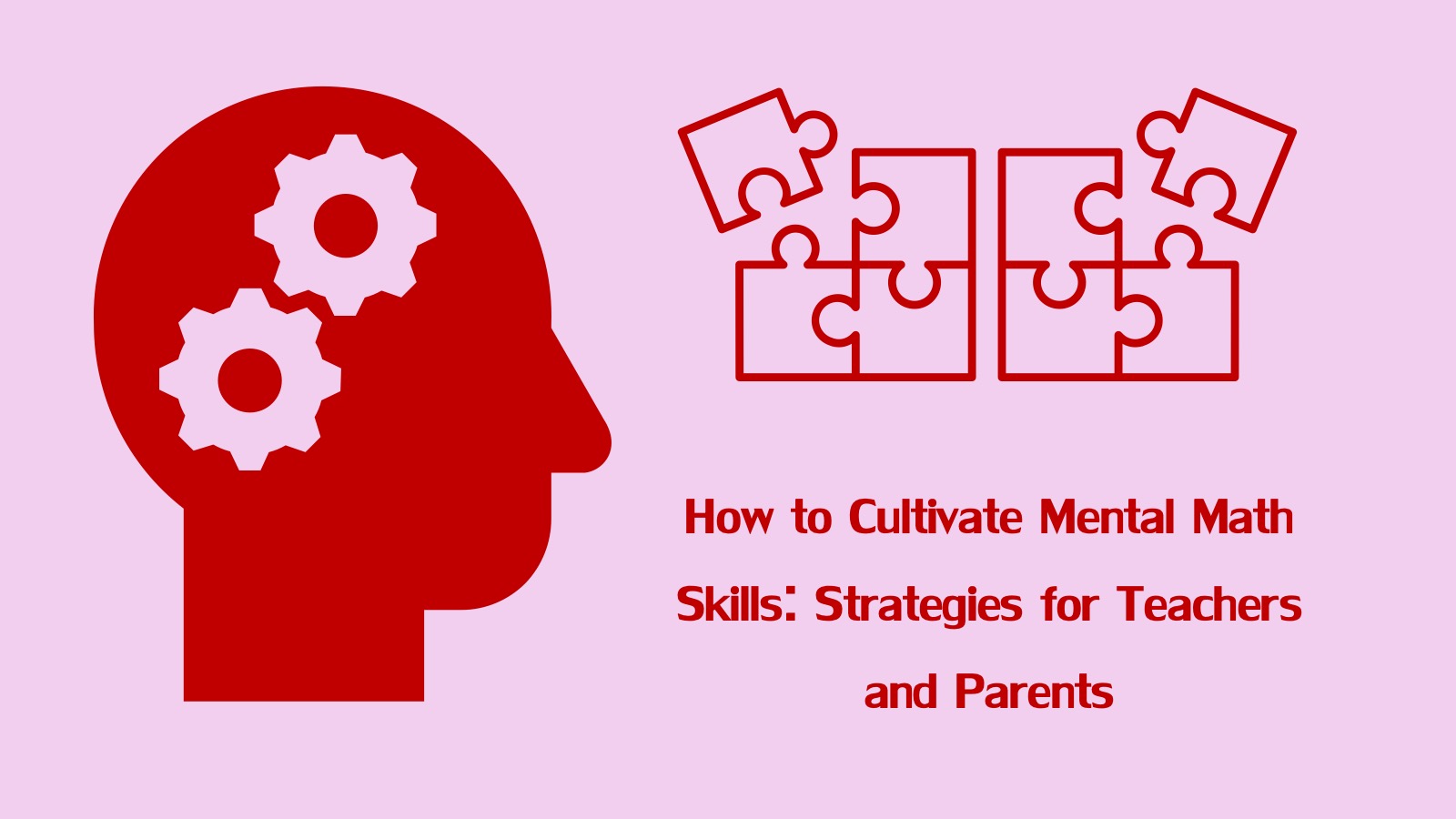Introduction:
In a world driven by technology, the importance of mental math skills is often overlooked. As a blog writer specializing in mathematics education, it’s alarming to witness the growing gap in students’ ability to perform mental calculations. Teachers find themselves grappling with this challenge in classrooms, and parents are equally concerned about their children’s mathematical proficiency. In this article, we will delve into various mental math strategies that educators can employ in schools and guide parents to implement at home, fostering a solid foundation for mathematical success.
The Power of Mental Math: A Critical Skill in the 21st Century
In today’s fast-paced world, the ability to calculate mentally is more than just a classroom skill; it’s a life skill. Mental math not only improves computational efficiency but also enhances problem-solving capabilities, critical thinking, and decision-making. Before we explore strategies, let’s understand why mental math is crucial in the development of a well-rounded individual.
Understanding the Challenge: Why Students Struggle with Mental Math
Before diving into the strategies, it’s essential to recognize the common challenges students face when it comes to mental math. The lack of engagement, fear of making mistakes, and an over-reliance on calculators contribute to the difficulty. As educators and parents, addressing these issues is the first step toward nurturing a positive attitude towards mental math.
Strategies for Teachers: Building Strong Foundations in the Classroom
- Incorporate Daily Mental Math Exercises:
Begin each class with a short session of mental math problems. This routine not only sharpens students’ mental faculties but also establishes a comfortable atmosphere for mathematical thinking. - Gamify Learning:
Introduce math games and activities that encourage students to compete while solving problems mentally. Games like “Speed Math” or “Math Jeopardy” make learning enjoyable and effective. - Real-World Applications:
Relate mental math to real-life scenarios. Show students how mental calculations are used in everyday situations, making the learning experience more relatable and engaging. - Peer Learning:
Foster a collaborative environment where students can work together on mental math challenges. Peer teaching not only enhances understanding but also builds confidence. - Emphasize Mental Math Techniques:
Teach specific mental math techniques such as rounding, breaking down complex problems, and using shortcuts for multiplication and division. Provide step-by-step guidance until students become comfortable applying these techniques independently.
Guiding Parents: Nurturing Mental Math Skills at Home
- Create a Math-Friendly Environment:
Establish a positive attitude towards math at home. Encourage discussions about math, solve problems together, and celebrate small achievements. A supportive environment plays a crucial role in a child’s mathematical development. - Incorporate Math into Daily Activities:
Infuse math into everyday routines. Whether it’s measuring ingredients while cooking, calculating expenses, or determining travel distances, these activities make mental math a natural part of daily life. - Use Math Apps and Online Resources:
Leverage technology to make learning enjoyable. Numerous math apps and online resources offer interactive games and challenges that reinforce mental math skills in an engaging way. - Family Math Nights:
Organize family math nights where parents and children can engage in math-related games and activities. This not only strengthens the bond between family members but also makes math a fun and shared experience. - Encourage Questions and Mistakes:
Create an environment where it’s okay to make mistakes and ask questions. Emphasize that learning is a process, and mistakes are opportunities for growth.
Conclusion:
In the quest to bridge the gap in mental math skills, collaboration between teachers and parents is key. By implementing these mental math strategies in the classroom and at home, we can empower students to develop a strong mathematical foundation. As we embrace the importance of mental math in the 21st century, let’s work together to nurture confident, capable, and mathematically literate individuals.
